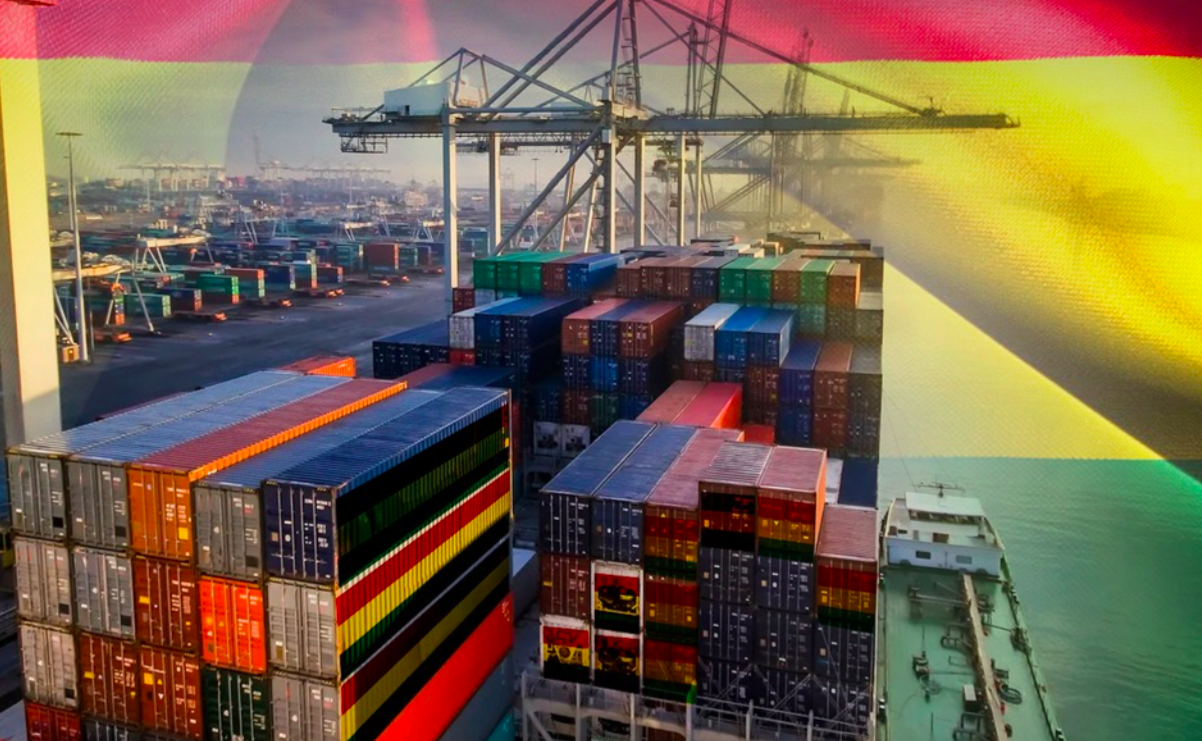The Government of Luis Arce stressed that its community social economic model allowed the country to consolidate its finances and advance in the industrialization of its resources, against the world trend, which is suffering the consequences of the sanctions imposed on Russia.
Sputnik consulted analysts on the correct economic measures of the National Executive.
After six years of deficit in its trade balance, Bolivia will end 2022 with record exports. The Government of Luis Arce expects to reach US$13 billion, largely thanks to the increase in international prices of hydrocarbons, among other items.
The president stressed that this improvement is due to implementing the Productive Community Social Economic Model.
Read also: Check out our coverage on Bolivia
“Until July 2022, the value of our exports reached US$8.275 billion, the highest figure recorded in the last 30 years,” Arce announced on his Twitter account.

The most remarkable fact is that 51% of exports correspond to manufactured products, which have added value and contributed to generating employment.
In this way, Bolivia begins to move away from its image of a country merely exporting raw materials, which it maintained throughout its history.
Sputnik consulted economists, who shared their analysis of the sound economic measures of the national government.
Deputy Omar Yujra is an economist and is also president of the Chamber’s Commission for Planning, Economic Policy, and Finance.
In dialogue with Sputnik, he highlighted that “the most dynamic and energizing sector of the economy for exports is our manufacturing industry, whose weight reflects the positive trade balance we are having.”
In this sense, Yujra indicated that there is a “surplus ” in the trade balance this year. Our exports are greater than imports by about US$1 billion.”
For the deputy, “this encourages us to say that the economic policies, through the reimplementation of the Productive Community Social Economic Model, are returning results”, as they did during the governments of Evo Morales (2006-2019), he commented.
After the de facto government of Jeanine Áñez (2019-2020), Arce “came to rebuild the economy and focus it on industrialization with import substitution.”
For Yujra, this direction “is already being reflected in the industrialization of natural resources such as lithium and iron, which also generate revenue for the country.”
The deputy pointed out that progress is also being made “in the industrialization of other sectors, such as agriculture and manufacturing.”
And he emphasized: “At this time, the manufacturing industry is giving more revenue in terms of exports, precisely by applying the import substitution model.” In this aspect, “the country is consolidating itself towards the long-awaited industrialization. We are already seeing results,” he assured.
THE MOST PROFITABLE ITEMS
Compared to the same period in 2021, exports increased by US$2.181 billion, equivalent to a growth of 36%, according to the National Institute of Statistics (INE).
The items that generated the most money so far were natural gas (US$1.428 billion), gold (US$1.397 billion), soybeans and their derivatives (US$1.144 billion), and zinc (US$979 million).
Economist and analyst Mike Gemio stressed that the Arce government “generated a series of public policies to reactivate the household economy, which was the most deeply felt area.
In turn, the government gave more power to the microeconomy, to the consumption capacity of the people, which generates an effect on the country’s productive capacity”.
For Gemio, “it is a succession of phenomena, starting from an emergency that our president has seen as an opportunity to launch a pool of economic policies,” he told Sputnik.
And he mentioned measures implemented by the Government since his arrival in 2020, such as the Bonus against Hunger, the Credit Sí Bolivia, the refund of the Value Added Tax (VAT), and the tax on large fortunes, among others.
“These policies boosted the family economy, which was the most affected after the COVID-19 pandemic and the de facto government. Now we have these results that benefit all Bolivians,” the analyst described.
BOLIVIA IMPROVES ITS COMPETITIVENESS
Gemio stressed that 51% of exports are manufactured products: “We are already turning the page on what has historically been a country that has depended on hydrocarbons and minerals.
Now it is looking forward, with productive capacities and improving its competitiveness at the international level because they buy from us products made in Bolivia”.
Last August, a massive march was held in support of President Arce, harassed by the same coup groups that acted in 2019 when they overthrew Morales.
Meeting with thousands of militants in the Plaza San Francisco in the city of La Paz, the president affirmed that several foreign powers want to prevent Bolivia from industrializing, because it is convenient for them to negotiate with a country limited to supplying raw materials.
“Neoliberalism at the time has understood it very well: to have a society with low levels of education, where a privileged class co-opts resources and, by leaving people in poverty, takes away their dignity. Without dignity, people are extremely easy to master”, illustrated Gemio.
He commented that although these political groups are no longer in power, they want to get it back.
For deputy Yujra, “there are always some private, transnational and national private interests. There is also the hand of far-right politicians who do not defend the interests of the Bolivian people.”
With information from Sputnik

